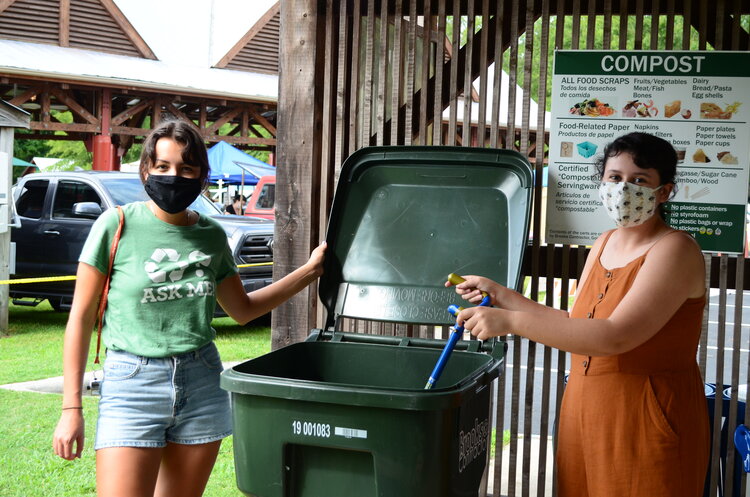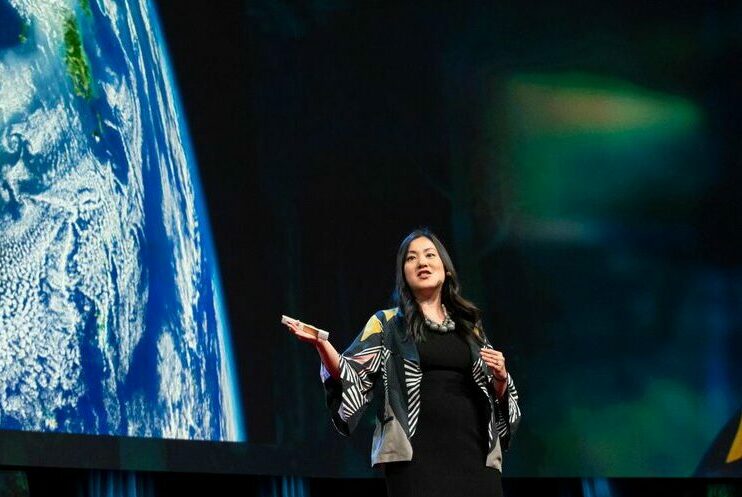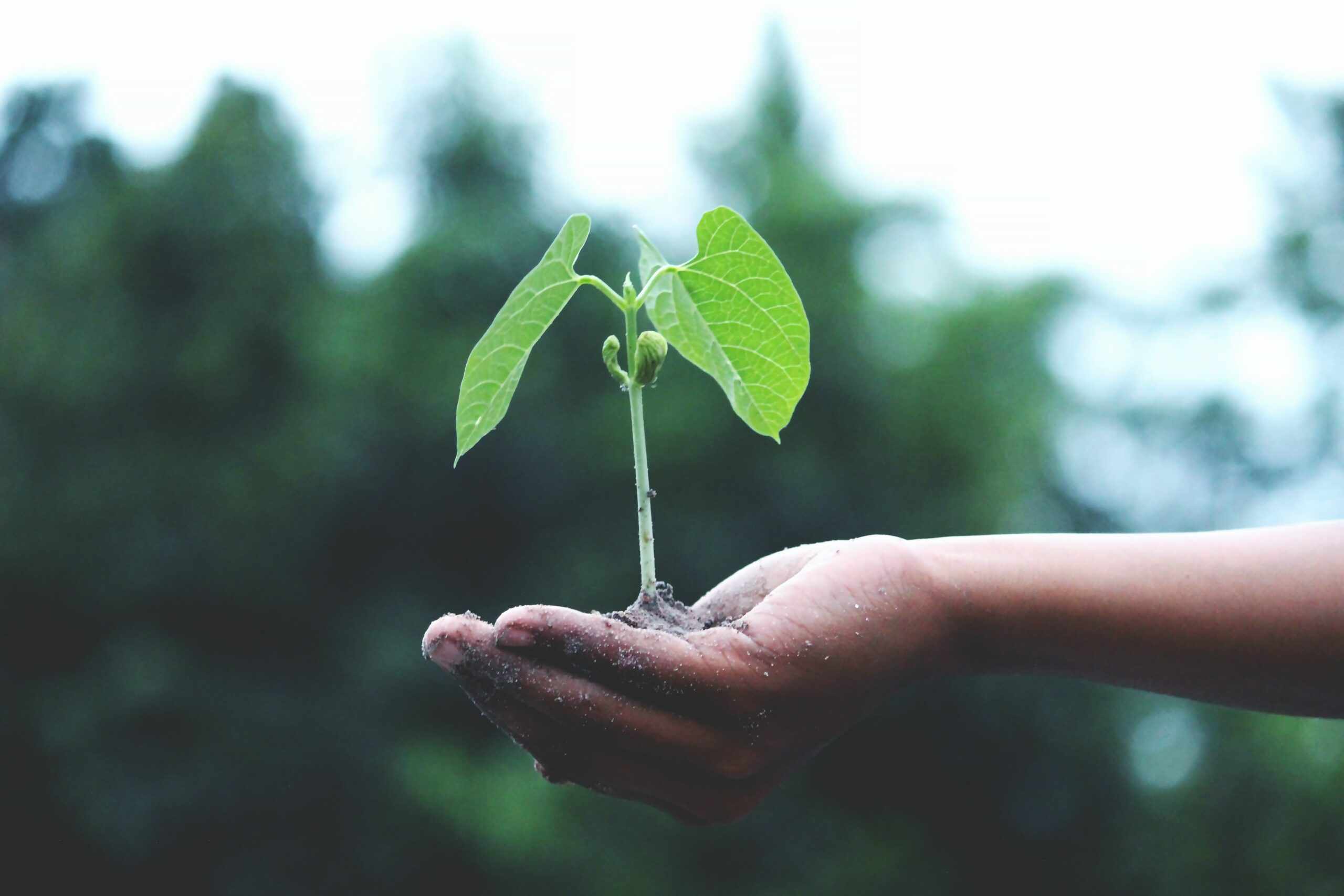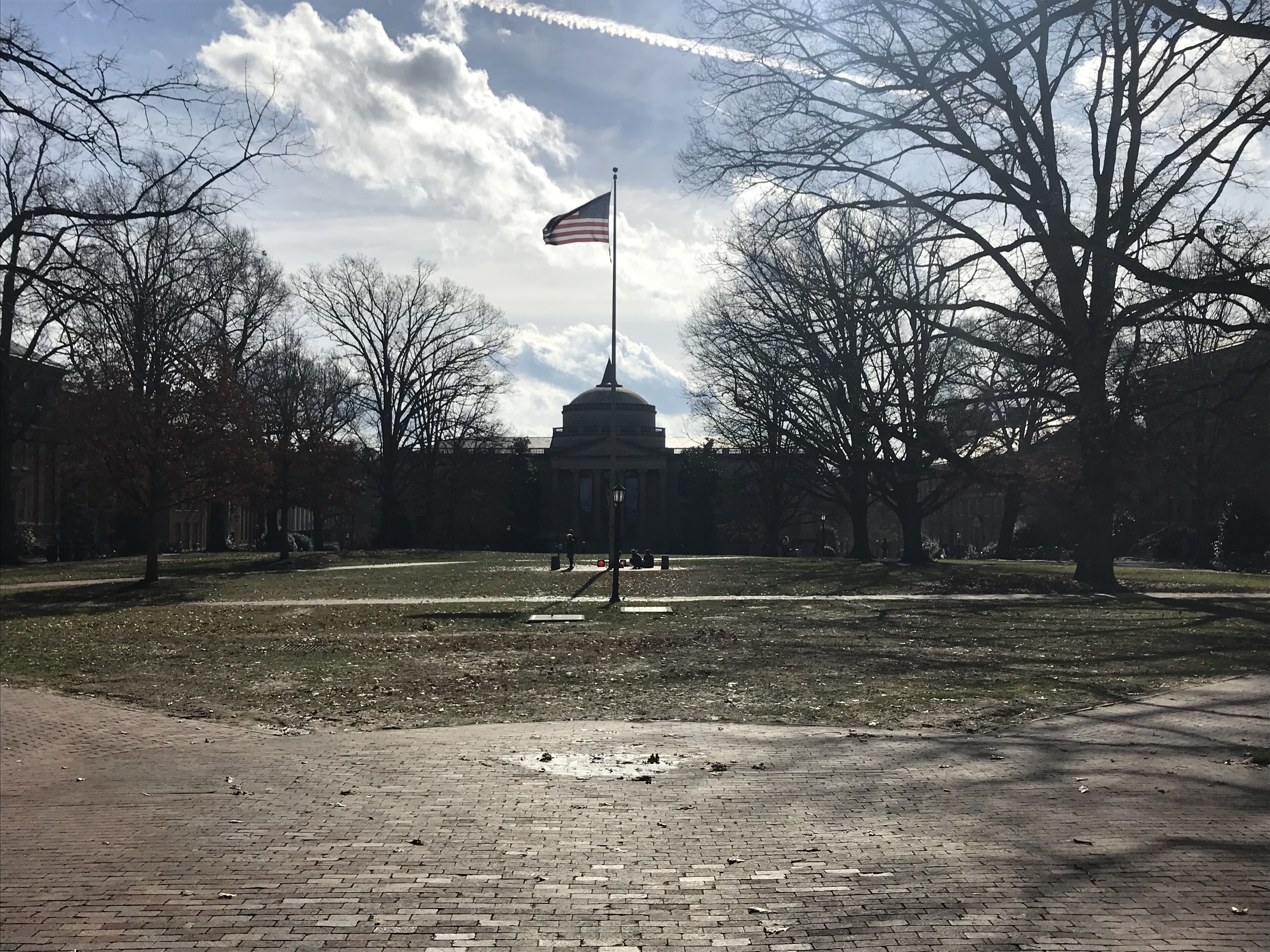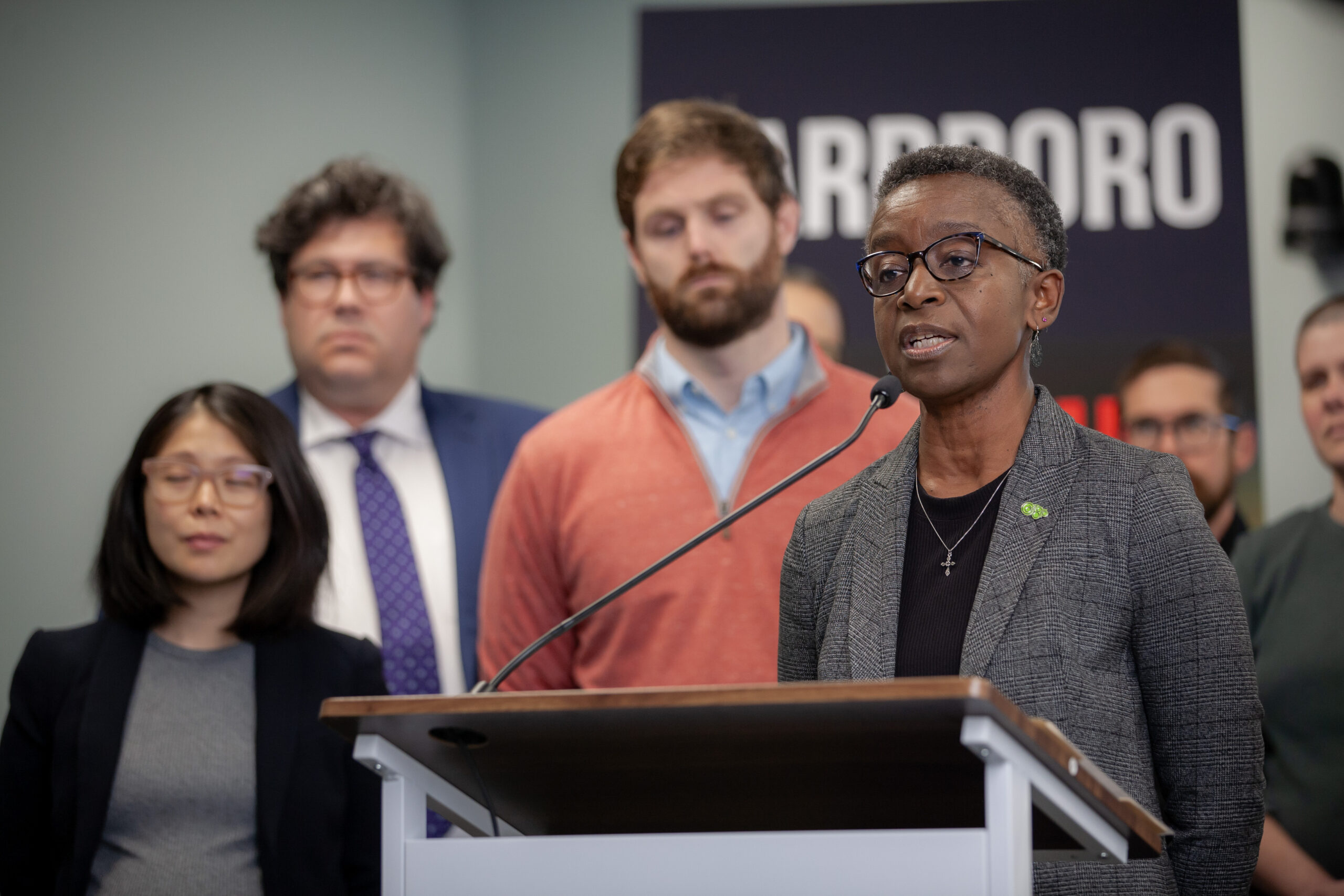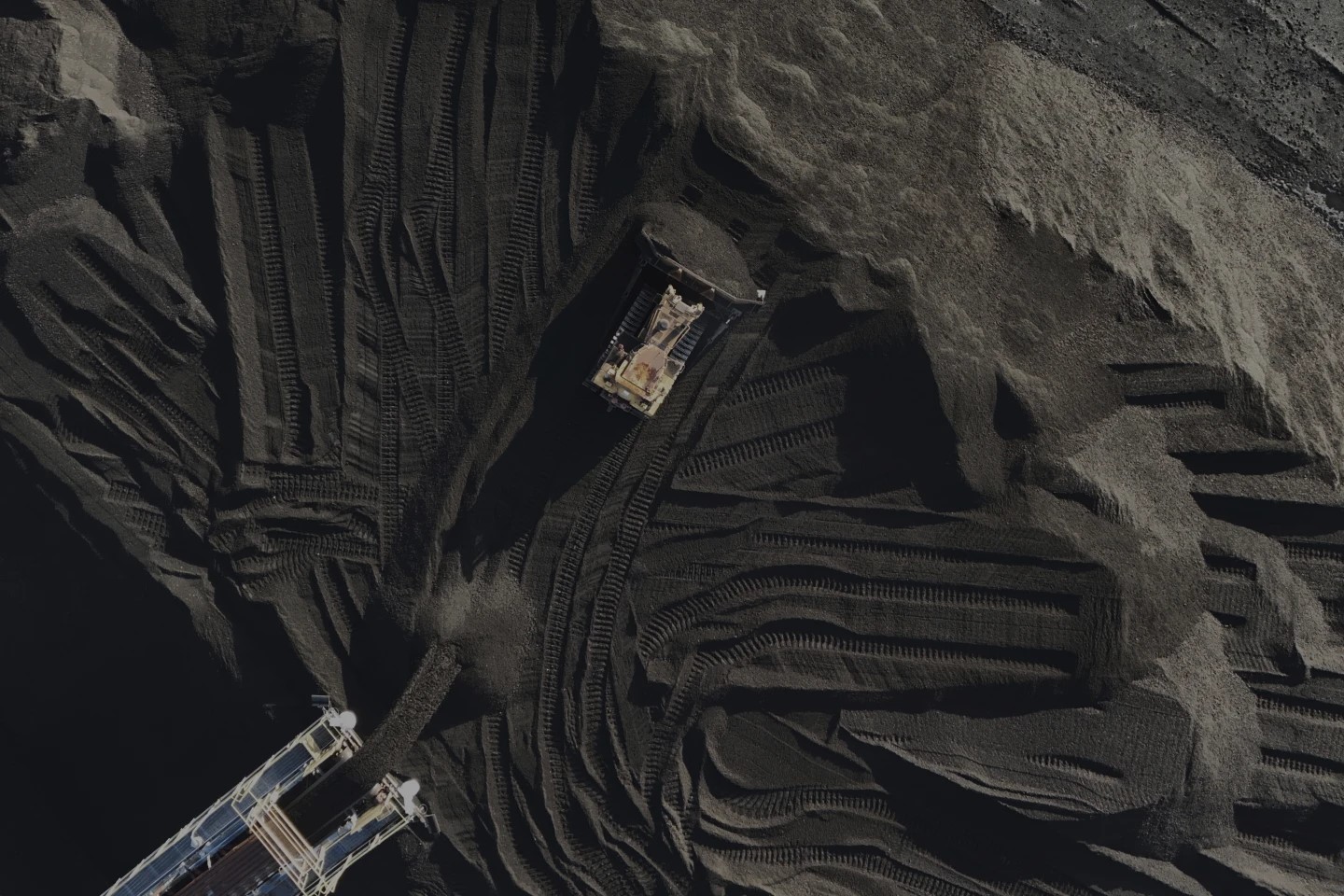The Town of Carrboro has long encouraged its residents to switch from chucking their food into the trashcan to in a compost bin. The town offers compost do-it-yourself bins and drop-off opportunities like the Carrboro Farmers Market. Now, it is considering adding a new option into the mix: curbside compost pickup.
Laura Janway, the town’s environmental sustainability coordinator, said the inspiration for this partially came from a solid waste study the town commissioned back in 2017. The study focused on single-family homes in the area and looked at how much food gets thrown in the landfill. Janway said it found more than half of the waste in the landfill could’ve been avoided.
“We have a really high percentage of things that we are throwing away that could be composted,” she said.
Composting is sprinkled throughout many strategies in the town’s climate action plan. The plan’s goals include cutting Carrboro’s carbon footprint in half by reducing greenhouse gas emissions 80%. To help try and achieve this, the town government plans to apply for a federal grant called the Solid Waste Infrastructure for Recycling (SWIFR).
“We started scoping it out and we’re thinking about applying for this big grant next year,” Janway said. “Hopefully we’ll have everything ready to go to apply for this big amount of money to do this [curbside compost] program.”
If Carrboro is awarded the funding, this would be its first-ever curbside compost pickup program. Janway said although it will be new, the process would likely mimic other waste collections.
“You would have a specific assigned day that we would let you know about and the town would collect it or a facility that we contract would collect it,” she said. “I think it would probably be pretty similar to garbage.”
Right now, the town picks up trash once a week. Findings from the waste study, however, suggest this could change by composting. It predicted that if 60% of the homes composted their waste instead, the town would likely have to only collect trash every other week.
About a decade ago, Orange County shut down its landfill. Janway said that because of this, Carrboro sends its waste to a transfer station in Durham. So, if the town was able to switch from weekly to biweekly trash pickups, it could save a lot of resources.
“It’s a bit of a trek,” she said. “Going out and collecting it every week and taking it all the way to Durham really contributes to the carbon footprint of the town because it’s a lot of gasoline used and mileage.”
Diverting food waste also serves another carbon footprint goal: reducing how much methane gas is released from the landfill. According to the EPA, methane gas contributes more to global warming than carbon dioxide.
“If we can reduce the methane emissions, it’s making a really big impact,” Janway said. “Landfill space is finite. We don’t have a ton of places where we can put our trash.”
Janway added that instead of pumping more methane into the Earth’s atmosphere, composted materials can sow more nutrients into Earth’s soil.
“The more that we can do, for everyone to reduce our carbon footprints, the better that the town and the community and the state and the entire globe will be.”
Although the SWIFR grant application is about a year out, Janway said there’s still ways for Carrboro residents to divert their food waste through the town’s other composting options. In Orange County, there’s six compost drop-off locations including the Carrboro Farmers Market.
“You can just bring it and we collect it,” Janway described. “We have the bins here outside at town hall. You can just drop it off.”
Another option people can take advantage of is composting in their backyard. Janway said all that’s needed is space, a compost bin and chicken wire to wrap around it. As for what to throw in there, she said the best compostable materials are foods like fruits, vegetables, eggshells and coffee grounds. It can also take yard waste like leaves and bush cuttings.
Another benefit that comes with composting in your backyard is that you can directly reap the benefits of the nutrients.
“You can add it to your garden soil when you’re preparing your garden,” Janway said. “Or you could just spread it in any flower beds or around trees or even just in your lawn. It’s really great to just mix in your soil.”
While DIY backyard composting and the waste study focuses more so on single-family housing, those aren’t the only homes the curbside compost program would be for. The town is also exploring ways to provide options for multi-family housing.
“When we do launch this, we want to make sure we’re giving everybody the chance to compost,” Janway said. “Especially people who don’t have a backyard or anything like that. It’s a lot harder to set up a big compost bin. We’re really hoping that we could do something town-wide for sure.”
Later this year, the town plans on doing a community climate action survey. Janway said part of the survey will ask the public how they feel about having a curbside compost program.
“Carrboro’s climate action plan, there’s a lot of different ways that you can reduce your carbon footprint,” she said. “But to me, composting is one of the most accessible because everybody has to eat. We all have food waste. Just doing one or two more steps with what you do with your food waste afterwards can make a huge difference.”
The Town of Carrboro has more information about composting on its website. Janway said you can also call or visit the composting drop-off sites in-person with questions.
Don’t live in Carrboro but still passionate about composting? Click on these other communities to learn what they’re doing:
Featured photo via Carrboro Farmers Market.
Chapelboro.com does not charge subscription fees, and you can directly support our efforts in local journalism here. Want more of what you see on Chapelboro? Let us bring free local news and community information to you by signing up for our biweekly newsletter.

